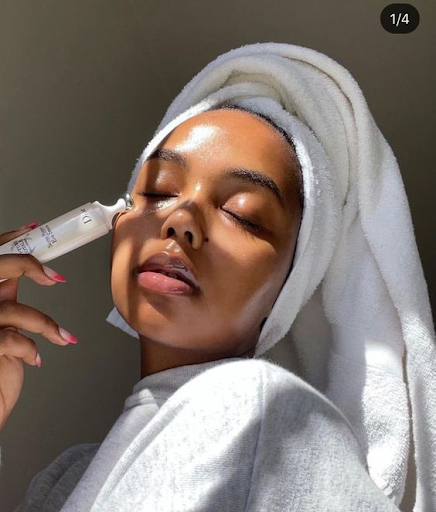The Role of Sleep in Skin Health
The connection between sleep and skin health is profound and often underestimated. Sleep is not just a time for rest; it is a crucial period for the body to repair itself, and this includes the skin. In this blog post, we will explore how sleep impacts skin health and provide actionable tips to improve your sleep habits for the benefit of your skin.
## The Impact of Sleep on Skin Health
### 1. **Repair and Regeneration**
During sleep, the body undergoes various restorative processes. Skin cells regenerate, collagen production increases, and blood flow to the skin enhances. This is essential for maintaining skin elasticity and reducing the appearance of fine lines and wrinkles. A lack of sleep can hinder these processes, leading to dull, tired-looking skin.
### 2. **Hormonal Balance**
Sleep plays a vital role in regulating hormones that affect skin health. Insufficient sleep can lead to increased levels of cortisol, the stress hormone, which can trigger inflammation and exacerbate skin conditions like acne and eczema. Moreover, sleep deprivation can disrupt the balance of growth hormones, essential for skin repair and rejuvenation.
### 3. **Hydration and Elasticity**
Research indicates that inadequate sleep can lead to dehydration, impacting skin hydration levels. A study found that individuals who slept less than eight hours a night showed signs of decreased skin elasticity and hydration. Well-hydrated skin appears plumper and more radiant, while dehydrated skin can look dull and lifeless.
### 4. **Visible Signs of Sleep Deprivation**
The effects of poor sleep manifest visibly. Common signs include dark circles, puffiness around the eyes, and a sallow complexion. Chronic sleep deprivation can lead to premature aging, as the skin becomes less able to recover from environmental stressors.
## Tips for Improving Sleep Habits
### 1. **Establish a Consistent Sleep Schedule**
Aim for 7-9 hours of sleep each night. Going to bed and waking up at the same time every day helps regulate your body’s internal clock, improving the quality of your sleep.
### 2. **Create a Relaxing Bedtime Routine**
Engage in calming activities before bed, such as reading, taking a warm bath, or practicing relaxation techniques like meditation or deep breathing. This signals to your body that it’s time to wind down.
### 3. **Optimize Your Sleep Environment**
Ensure your bedroom is conducive to sleep. Keep the room dark, quiet, and cool. Consider using blackout curtains, earplugs, or white noise machines to minimize disturbances.
### 4. **Invest in Quality Bedding**
Your choice of bedding can affect your sleep quality. Silk pillowcases are recommended as they are gentler on the skin and can reduce friction, which may help prevent irritation and breakouts. Additionally, a comfortable mattress and supportive pillows are crucial for restful sleep.
### 5. **Limit Screen Time Before Bed**
The blue light emitted by phones, tablets, and computers can interfere with melatonin production, making it harder to fall asleep. Aim to turn off screens at least an hour before bedtime.
### 6. **Watch Your Diet**
Avoid heavy meals, caffeine, and alcohol close to bedtime. These can disrupt sleep patterns. Instead, opt for light snacks if you’re hungry, such as yogurt or a banana.
### 7. **Stay Hydrated Throughout the Day**
While it's important to stay hydrated, try to limit fluid intake in the hour before bed to reduce nighttime awakenings for bathroom trips.
### 8. **Exercise Regularly**
Regular physical activity can help you fall asleep faster and enjoy deeper sleep. However, avoid vigorous workouts close to bedtime, as they may have the opposite effect.
### 9. **Manage Stress**
Chronic stress can significantly impact sleep quality. Incorporate stress management techniques such as yoga, mindfulness, or journaling into your daily routine to promote relaxation.
## Conclusion
The role of sleep in skin health cannot be overstated. Prioritizing quality sleep is essential for maintaining a healthy, glowing complexion. By implementing the tips outlined above, you can improve your sleep habits and, in turn, enhance your skin's appearance and overall health. Remember, beauty sleep is not just a saying; it’s a vital component of a comprehensive skincare routine.
Citations:
[1] https://www.healthline.com/health/beauty-skin-care/beauty-sleep
[2] https://www.healthline.com/health/sleep-and-skin-explained
[3] https://plumgoodness.com/blogs/skincare/glowing-skin-naturally
[4] https://cityskinclinic.com/how-to-make-your-skin-glow/
[5] https://www.webmd.com/sleep-disorders/ss/slideshow-sleep-tips
[6] https://www.mayoclinic.org/healthy-lifestyle/adult-health/in-depth/skin-care/art-20048237
[7] https://www.medicalnewstoday.com/articles/how-to-get-glowing-skin
[8] https://www.lompocvmc.com/blogs/2022/october/11-ways-to-get-glowing-skin-without-using-skinca/


Comments
Post a Comment